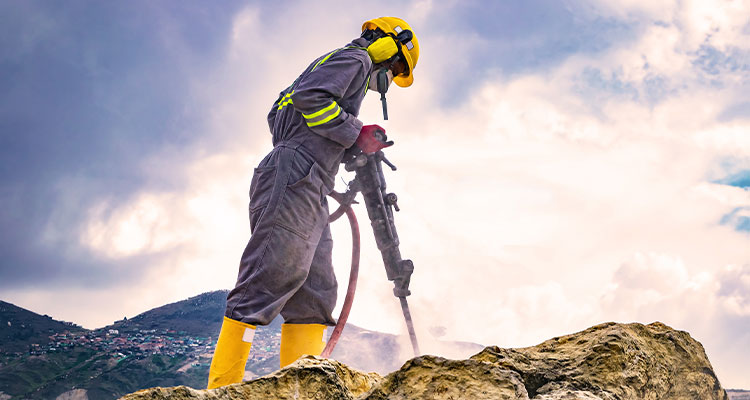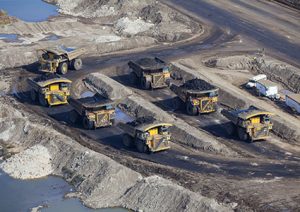
Minimizing risk of injury in one of the world’s most dangerous industries. By Chris Murff
Despite the incredible progress that has been made in the last few decades to improve safety standards, mining is still considered one of the most demanding and dangerous work environments in the world. With the third highest fatality rate of any industry, mining organizations still find themselves under immense pressure to provide reassurance to both workers and potential recruits that they have minimized the risk of injury where possible.
Mining locations are inherently dangerous and isolated, which demands investment in robust medical care for personnel. Providing comprehensive on-site medical care in complex locations ensures employees benefit from a higher level of care, reducing the risk of injury and minimizing potential downtime. For an organization, this can bring enhanced savings and increased operational efficiency.
Each project presents its own unique set of obstacles and threats, and requires a tailored approach based on specific circumstances. The most effective medical solution for each mining operation depends on various factors, including the quality of the roads, local medical regulations, and the type of work performed – as often, local emergency services are unable to reach injured employees due to the hazardous terrain. From the Arizona desert in the US, to the coal mines of Zimbabwe, RMI provides specialist support to develop and deliver bespoke health and medical services, from risk assessments to permanent on-site medical teams, to hazardous client work sites across the globe.
Minimizing risk before and during projects
The remoteness and demanding nature of the mining industry requires workers to be in good physical condition to handle the work and avoid costly delays to the project should they become ill on-site. RMI can coordinate occupational health screening to reduce the administrative demands on an organization by ensuring that each worker has obtained medical clearance prior to working on-site – from physical exams and health history assessments to drug and alcohol testing.
Medical teams are integral to the wellbeing and safeguarding of the workforce once the project has begun, and as a result, they are highly valued members of the workforce. This ensures that workers know exactly who to turn to when medical or rapid emergency care is required on-site.
 Medical support is much more than a medic with a first aid kit. For example, many of RMI’s on-site medics play a vital role in reinforcing healthy lifestyle among workers and ensuring early intervention through providing education and training. Smoking cessation advice, tailored health awareness campaigns, first aid, and CPR training, are just some of the support services that work to improve the day-to-day awareness of health and safety practices among the workforce, reduce the risk of injuries and illness, and ensure that people feel valued at work.
Medical support is much more than a medic with a first aid kit. For example, many of RMI’s on-site medics play a vital role in reinforcing healthy lifestyle among workers and ensuring early intervention through providing education and training. Smoking cessation advice, tailored health awareness campaigns, first aid, and CPR training, are just some of the support services that work to improve the day-to-day awareness of health and safety practices among the workforce, reduce the risk of injuries and illness, and ensure that people feel valued at work.
Mobile and on the spot support
RMI’s medical facilities, which can be temporarily or permanently integrated into a site, or operate in mobile structures, offer flexible care for a wide range of injuries and illnesses. This all helps to limit the number of cases that require referral to further off-site medical clinics, saving time and resources, as well as increasing efficiency by enabling staff to return to work as soon as possible.
In the event of an emergency, medical providers need to also ensure that suitable transport routes are available for emergency vehicles to both quickly access and evacuate workers, wherever they may be located on-site. This is where Mobile Treatment Centers (MTC), deployed by RMI at various mining worksites, become invaluable. These four-wheel drive clinics offer a mobile, on-site solution, allowing medical staff to provide treatment in the types of remote environments standard emergency vehicles are unable to reach. In addition to a treatment area, storage, and hand washing facilities, each MTC is equipped with first aid supplies and emergency response equipment, meaning that our medics are well prepared to respond to any type of medical emergency.
Even with tailored medical solutions such as these, sometimes medical providers cannot access injured employees on-site quickly, especially where mining sites are so large. RMI has worked on large worksites where mining employees need access to additional services, like telemedicine, to treat injuries quickly. This enables nearby employees to call around-the-clock medical provision to receive advice in real-time.
Emergency response plans
All mining sites, no matter the location, should have a Medical Emergency Response Plan (MERP) in place. Whether sudden cardiac arrest or a work-related injury, MERPs ensure that no time is lost in the event of an emergency medical situation. This plan will typically outline referral facilities for further diagnosis or operations, their capabilities to treat a wide variety of health emergencies and should specify how to transport patients to these places.
Considering these types of on-site and offsite medical support services for mining projects will ensure the stability of operations and, most importantly, the wellbeing of a highly valued and healthy workforce.
Chris Murff
Chris Murff is Vice President of Global Sales at RMI. RMI delivers technical, medical and security solutions to companies and governments around the world. The company has offices in the Americas, UK, and Africa, and has been recognized six times by Inc. 5000 as one of the fastest-growing companies in the United States. RMI works with Fortune 100 corporations and governments.